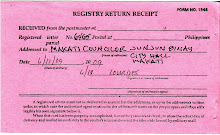http://www.cpsc.gov/
CPSC’s List of Dangerous Toys 2008
Every year, parents and grandparents want to know what the best and worst toys are for the coming holiday season. While CPSC isn’t in the business of evaluating what’s hot and what’s not, we can provide parents with vital and important shopping tips.
One way to evaluate toy safety is to look at what’s been recalled due to safety defects or violations. From the beginning of the calendar year, CPSC has recalled about 50 toys, which can be categorized by toy type.
Parents can keep the holidays fun by being safety-savvy shoppers; by looking for age-appropriate toys; and by reading all the warning labels carefully. Gift givers should also follow these important tips:
• Kids less than 8 years old in the house? Avoid toys with magnets or magnetic components small enough to swallow.
• Only adults should charge remote-controlled toys following manufacturer instructions; never overcharge.
• Watch for small parts around infants and young children.
• Sign up for free recall notifications by e-mail. As soon as there’s a recall,you’ll know what’s affected and what to do.
(63% of units recalled) Toys with strong magnets that can be swallowed by children: Magnets can fall out of their housing or be found in small, ingestible plastic components. If more than one magnet or a magnet and a metal object are swallowed, they can forcefully attract each other through intestine walls causing serious injury, infection and death.
#
1
About 1.3 million magnetic toy figures were recalled on March 17, 2008.
(20% of units recalled) remote controlled toys and accessories, which can pose fire and burn hazards: Rechargeable lithium batteries (lithium-ion or lithium polymer) are increasingly being used in toys because the technology is lighter and has a lot of energy in a small package, but overheating,fires, burns and explosions have occurred.
#
2
About 685,000 remote-controlled helicopters with lithium batteries were recalled on July 24, 2008. (12% of units recalled) toys with small partsrts that can come loose posing an immediate choking or aspiration hazard to infants and toddlers.
#
3
About 300,000 plush toys with small parts were recalled on April 7, 2008.
Suggestions for someone who survived the loss of a loved one:
Prepare
The ambush of emotions can occur at any time; prepare.
Accept
Remind yourself that it will pass. Be honest with family and friends; tell them things might be different this year. Limit social, family and church commitments to your energy level.
Socialize
Socialize, even a little. Feelings of insecurity may tempt you to isolate yourself but force yourself to go out, even briefly.
Lower your expectations
Avoid movies and songs that paint an unrealistic feature of the holidays. Turn off the radio or change the channel if a song or show triggers sadness.
Don't anesthetize
Dont anesthetize the pain with drugs or alcohol. Numbing emotional distress with chemicals creates greater depression.
Trimmings
If old ornaments or trimmings cause too much pain, don't hang them this year.
Get up and move
Take care of your well being. Healthy foods will give you strength; fattening and sugar-filled foods can worsen your depression. Exercise produces natrural stress reducers.
Coping
Commit to call someone if negative thoughts get fierce. A note to those with friends in grief: Short phone calls mean a lot. Usually you only need to ask the person how he or he is doing.
If you are calling, it is very important you mention the loved one. You may even share a memory you have of that person. The survivor doesn't want to forget the loved one; he or she doesn't want you to forget the person either.
Invitation
Invite a new (same-sex friend) friend to see a movie, have dinner, or help decorate the house.
Set boundaries
Explain to family and friends what you are capable of doing this year and what you aren't. Don't let others make you take on more than you can handle.
Reach out
Reach out to others by discovering people who might be alone during the holidays. Despite the sadness, Christmas reminds us there remains much to be thankful for. It gives us hope to move on and persevere.
web sites with free information regarding surviving the loss of a loved one:
www.healthsystem.virginia.edu/
http://ohioline.osu.edu/
http://findarticles.com/
http://www.associatedcontent.com/a
web sites with useful free information:
Canadian Mental Health Association web site
http://www.cmha.ca/
drspock com web site
http://www.drspock.com/
mindtools web site
http://www.mindtools.com/
Subscribe to:
Post Comments (Atom)
image of registry return receipt of letter addressed to Makati councilor J. J. Binay


No comments:
Post a Comment